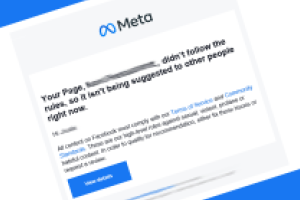This article originally appeared in the Worcester Business Journal on January 25th, 2021.
When hearing the term “small business,” you probably envision a decades-old hardware store or that North End restaurant you order takeout from once a week. However, other small business owners and I are finding out the hard way there is an exploitive gulf between ours and the government’s definitions being used to protect and save them.
As I write this, I’m feeling the same frustration as I work nonstop to guide my company through another set of small business relief funding, which defines small businesses as any company making less than $100 million annually. It reminds me of the ridiculous lengths I had to take during the last round of the Payroll Protection Program to secure funding for my 10-employee business.
In the decades ago that was May 2020, I checked my messages every hour. I had submitted our PPP application on the first day of the first round of funding to Bank of America. Next, the teeth-grinding process of information requests and asking for updates. Finally, we got confirmation our application was accepted. In the weeks of silence to follow, all calls and emails triggered automated responses conveying no one was available to talk to us.
It took intervention from our state’s government delegation (a deputy director from Congressman Jim McGovern) to break this stonewall and get a Bank of America vice president to take accountability and get our PPP application processed. So why were mine and so many other actual small businesses at the bottom of that queue? Why were we the face of the funding but not the recipients of the relief?
It comes down to the definitions of small businesses and the favoritism banks – notably Bank of America, which is now facing multiple lawsuits – have shown to the biggest of small businesses. Those with connections, full-time staff, and more favorable loan sizes made out the best, talking to bank VPs without having to beg for government assistance.
The gap between a small business at the top of that food chain and what you and I support as small businesses – the restaurant on the corner, the mom-and-pop retailer, the women’s boutique – is insurmountable. They don’t stand a chance against a multi-state, 400+ staff corporation, with a well-connected millionaire CEO.
Small businesses are dying, and the relief supposedly being set aside for them is beyond reach. We need to redefine small companies and make sure when we offer them safety nets like the PPP, and that it’s for them, first and foremost. To first access and apply, to first speak to a live human about their applications, and to first be processed and funded.
The term small business has always been subjective. Now it feels like a catchphrase evoking a vision of that local hardware store, but really what it means is much larger businesses are competing for the same dollars. Change the definition and get the security nets in place for the smallest of businesses, not those too big or well connected to fail.




